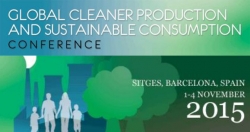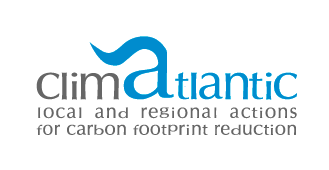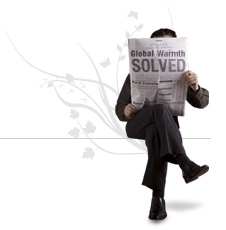NEWS & EVENTS : SOCIAL BEHAVIOUR

Global Cleaner Production and Sustainable Consumption Conference
11.01.2015
Accelerating the Transition to Equitable Post Fossil-Carbon Societies
1 - 4 November 2015 | Sitges, Barcelona, Spain
climatlantic //
Workshop Catalysing Urban Transformations:
Case studies and theories on mechanisms to CUT through the physical and cultural inertia of cities and urban life to accelerate the transition to resilient low fossil carbon futures.
Call for Papers:
The Global Cleaner Production and Sustainable Consumption Conference: Accelerating the Transition to Equitable, Sustainable Post-Fossil-Carbon Societies.
We are almost halfway through the period referred to as “the critical decade” (Hughes and Steffen, 2013), being the time in which our decisions and actions on climate change will determine the success or failure of a post-fossil carbon transition necessary to avoid severe implications for global society.
At the strategic level, it is abundantly clear that the focus for action in this decade will be cities, usually attributed to the following:
· Cities are now where more than half the population of the world reside.
· Cities account for around 75% of greenhouse gas production while occupying about 2% of the global land area.
· Nearly half of the world’s cities are considered to suffer from the direct effects of a changing climate.
· The contribution of cities to national economies in most nations is very significant.
· Cities can be instrumental in generating the innovation and creativity necessary for the transition to post fossil carbon societies.
· Where global climate action has stalled, individual cities and networks of cities are adopting reduction targets and are actively investing in programs to achieve resilience.
The great challenge for cities is that they are complex adaptive systems with significant embedded dependencies – social, cultural, physical and technical – ‘built-in’ over the years of their development. This means that there is great inertia that must be overcome – the necessary transformation of cities can be considered a process of unlocking or disembedding its energy underpinnings, rapidly reducing resource and energy consumption and switching to renewable sources. That is challenging enough, but the transformation task for cities do not stop with energy; the physical infrastructure and the form of the city also reflects (directly and indirectly) prevailing climatic conditions. There is mounting evidence that changes in climate patterns and extreme weather events can make that historical infrastructure vulnerable (Stone 2012).
With climate patterns changing and with the changes in energy systems, all the essential infrastructures of provision for cities (e.g. energy, water, food, transport, shelter, waste, products and services and information) will have to be changed!
The critical issue facing cities is therefore, how can they effect the rapid and effective transformations that are urgently needed, particularly when much of that transformation can appear to undermine the social, cultural and economic conditions that stem from historical development and progress? This workshop will focus on contributions to the transformation of urban conditions that involve:
· Events (time-limited, one-off or recurring social and cultural celebrations) to create new experiences or to demonstrate new conditions (such as the European Cultural Capital program which forms one case study in this workshop based on preparations in Friesland for 2018).
· New future visions or imaginaries (generating new conceptualisations of cities of urban living conditions) aimed at exploring non business-as-usual expectations of the future.
· Experimentation or living laboratories (establishing intentional trials or demonstrations of alternative social, cultural, technological and physical relationships to explore what might be possible conditions for transformed urban living).
Format and Procedures for Submission of Responses to this Call for Papers:
We invite authors to prepare abstracts of 500 words in response this Call-for-Papers. The abstracts are to be prepared in English.
Abstracts are invited from practitioners and non-academic authors to present case studies of processes designed to bring about transformations.
Please submit your abstract(s) via the conference website:
http://www.cleanerproductionconference.com/
After the Global Conference, scientific teams of the Global Conference will select the articles to be developed for peer review and for potential publication within one of several Special Volumes of the JCLP (Journal of Cleaner Production) that will be developed based upon initial inputs to the Global Conference.
For further information please consult:
- Chris Ryan, University of Melbourne (cryan@unimelb.edu.au)
- Kes McCormick, University of Lund (kes.mccormick@iiiee.lu.se)
- Han Brezet, TU Delft, (J.C.Brezet@tudelft.nl)
- Idil Gaziulusoy, University of Melbourne (idil.gaziulusoy@unimelb.edu.au)
- Simon Tijsma, Province of Friesland (s.tijsma@fryslan.nl)








